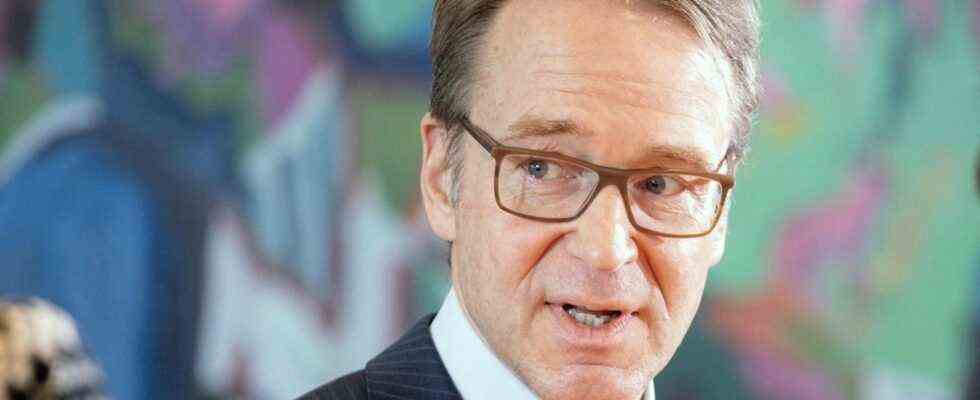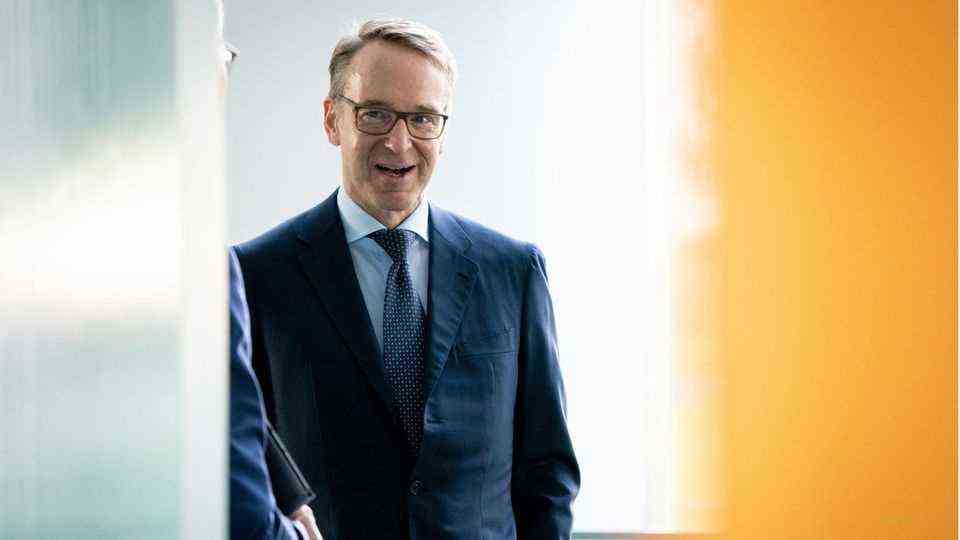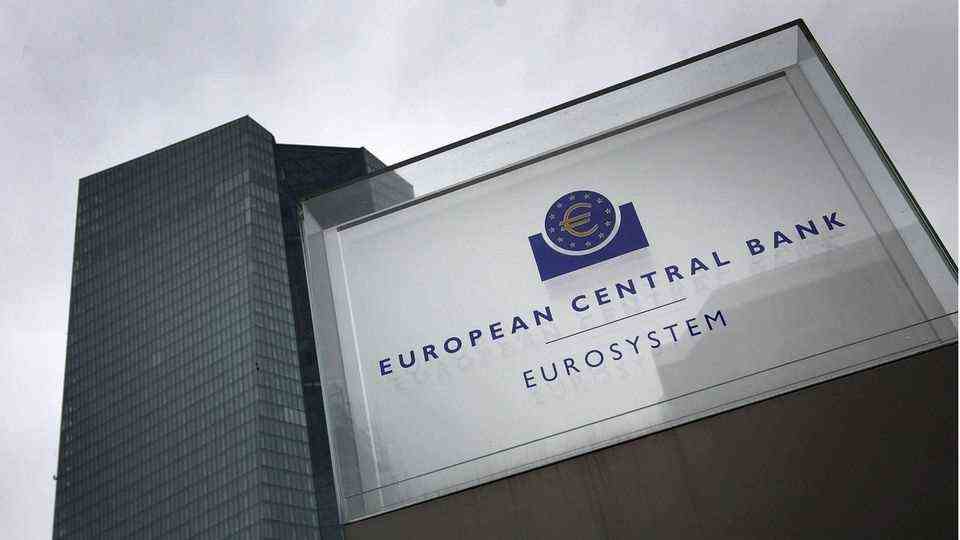The Bundesbank loses its boss. The myth of the once powerful institution is long gone – as the reactions to Jens Weidmann’s resignation show.
When Jens Weidmann announced this week that he was leaving the Bundesbank at the end of the year, the news only echoed for a few hours. By the evening she only made it to the back of most of the news programs. The President of the Bundesbank leaves long before the end of his term of office; and that in a phase in which the measured price increase is higher than it has been for decades. His successor is now being negotiated in the traffic light coalition’s bazaar. But that did not spark any great outrage or long special broadcasts. And precisely therein lies something like a message.
In the Council of the European Central Bank, Weidmann was considered to be one of the last old-school monetary politicians and therefore only partially compatible with the spirit of the new era, in which central banks save everything and everyone and possibly the climate at the same time. As a farewell, in a letter to dear colleagues, the 53-year-old stated that “in the ongoing crisis mode, the coordinate system of monetary policy has been shifted”. He warned “not to lose sight of prospective inflation risks”. It was a real hunter. Councilor in tone, friendly and obliging, but still with a deep current in which the frustration swam over the fact that his attitudes mostly found himself in the minority.
Concern about “fiscal dominance”
The Bundesbank is just part of the European central bank system. Long gone are the days when the French Jacques Delors could scoff at the fact that not all Germans believed in God, but all of them believed in the Bundesbank. Before the introduction of monetary union, it de facto set the continent’s interest rates – often to the annoyance of other Europeans – based on the demands of the German economy, no matter how much the neighbors groaned. And she set the rates according to the German priorities. Which always meant that interest rates had to rise in the event of inflation. Because from the Frankfurt’s point of view, the stability of the D-Mark was pretty much the beginning of everything and the end of their mission.
Today it is not just the tasks of central banks that are much larger. So is your closeness to politics. Some economists even fear “fiscal dominance”: In order for the highly indebted euro countries to be able to cope with their debts, the central bank prefers to add an additional bond purchase program instead of risking debt interest rates for Italy, Greece and Co. rising. There is little to suggest that this could change again.
In addition, it is by no means certain that the Europeans would have done better with a stability-oriented ECB boss than with “Whatever it takes” President Mario Draghi. A tight monetary policy would probably have stalled the European economy even more after the financial and debt crisis.
It seems all the more desirable that a situation does not arise in which the choice has to be made between too much inflation and the cold withdrawal of cheap money. For the foreseeable future at least, it looks like that can be achieved. Or at least: can be achieved again.
Inflation is not a consequence of the ECB’s policy
In the past few years, inflation seemed something like a voracious beetle, which regularly rages badly in the south, but in our latitudes no longer occurs so often that it could nibble on the harvest. In Venezuela, just above the equator, the rulers have just deleted six zeros from the astronomical sums on the banknotes. But here? No matter how much money Weidmann and his more generous council members pushed into the markets, no matter how deep the European Central Bank cut interest rates – inflation remained a historical phenomenon, even if that did not fit the theories that middle-aged economists had learned at university.
Prices have been rising since summer. But that is not a consequence of the ECB’s monetary policy. Instead, scarce gas, ship congestion in front of Chinese ports and special statistical effects are driving inflation. There is still a lot to suggest that this is a temporary effect.
Yesterday I stumbled upon two graphics that show the development of heating oil prices. One shows the last three months. The price is constantly striving upwards, from under 70 to over 90 euros for 100 liters. That looks bad. The other graph shows the prices for the past 15 years. The curve has four peaks, four times the price has risen significantly up to or above the 90 euro mark: in 2008, 2012, 2018 and 2021. After the peak, it always went downhill again, at least in previous years. It looks stable and peaceful and completely undramatic.
The final perspective seems broader, more revealing, superior in every way. But it doesn’t match the feeling that spreads when the tanker has filled up the oil supply in the cellar or the new winter tires are fitted to the car. Amazing price hikes – for example in gas – are perceived as part of something bigger. For many, the ongoing delivery difficulties, production downtimes due to interrupted supply chains, and alarmist reports of impending disaster form a coherent picture.
The problem is fear
But that is exactly where the problem lies. The fear that comes up in many and is fueled by some. Because, like most things in life, inflation is at least as dependent on expectations and attitudes as it is on actual conditions. Fears of rising prices could drive people into the shops, induce the unions to demand wages and the dealers to raise prices, because everything is becoming more expensive anyway.
It doesn’t have to happen that way, in fact, it’s pretty unlikely. Because those who are desperate do not spend any money, there are always two sides to collective agreements, and purchases are only made if the price appears acceptable. The majority of economists expect the spook to be over sometime in the spring – with almost no help from the central banks. Or at least inflation will then settle at a level that no longer needs to frighten anyone.
But the future is not fixed. It depends on how we behave. Somehow it seems to be a very personal contribution to overcoming the inflationary tendencies to relax first. Jens Weidmann doesn’t even need an excuse for doing nothing. According to ECB guidelines, he has to wait two years before he can take on a new 16-hour job in the financial sector and earn a lot of money.
Note: The comment appeared first on “capital.de”



